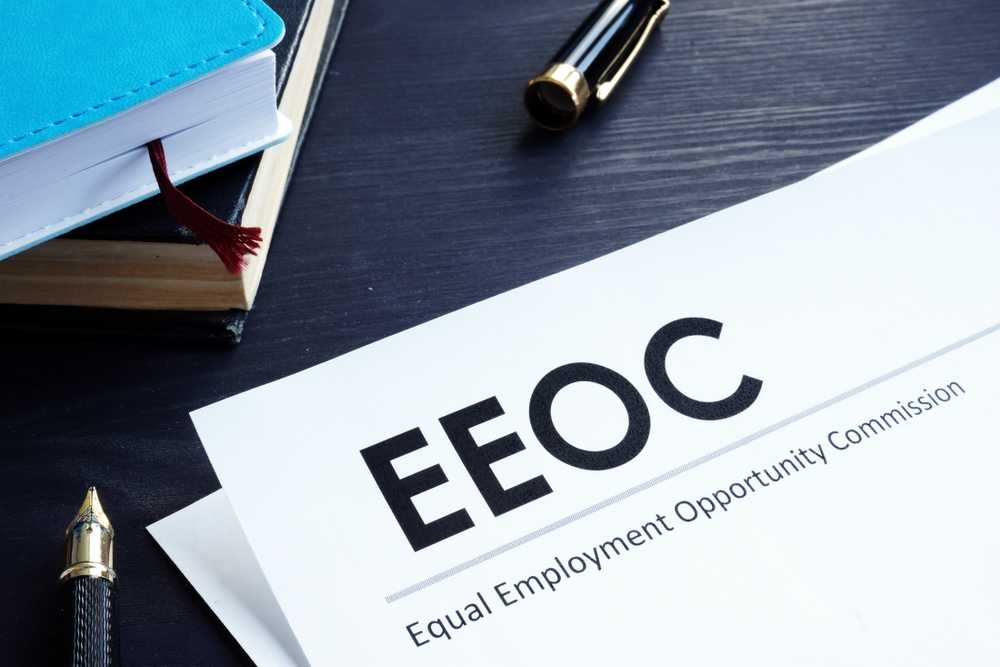The U.S. Equal Employment Opportunity Commission (EEOC) is a federal agency responsible for enforcing and administering civil rights laws that prohibit workplace discrimination. Federal laws enforced by this agency prohibit discriminatory practices towards job applicants or employees based on his or her color, race, religion, sex (including gender identity, pregnancy, and sexual orientation), age, disability, or genetic information.
Discrimination against individuals who complained about discrimination, filed a charge of discrimination, or participated in an investigation of these claims, is also prohibited.
Employers with at least 15 employees (20 employees in age discrimination cases) are compliant with the EEOC laws.
History of The Equal Employment Opportunity Commission
The forerunner of the EEOC, the President’s Committee on Equal Employment Opportunity, was established on March 6, 1961, when President John F. Kennedy signed the Executive Order 10925, which required government contractors to “take affirmative action to ensure that applicants are employed and employees are treated during employment without regard to their race, creed, color, or national origin.”
Vice president Lyndon Johnson was appointed the head of this agency.
The EEOC was established July 2, 1965. Its mandate is specified under Title VII of the Civil Rights Act of 1964, the Rehabilitation Act, the Age Discrimination in Employment Act (ADEA), the Americans with Disabilities Act (ADA), and the ADA Amendments Act.
Headquarters of the EEOC are in Washington D.C. with 53 field offices serving every part of the US.
Role and authority of The Equal Employment Opportunity Commission
The EEOC investigates discriminations charges and complaints based on an individual’s race, sex, gender identity, sexual orientation, national origin, and retaliation for reporting and opposing discriminatory practices. The role of the EEOC is to assess the allegations in the charge fairly and accurately and try to settle the charge if the discrimination occurred.
The EEOC has the authority to file a lawsuit to protect the rights of individuals or public interest if the settling fails.
Filing a charge with the EEOC
If you are considering taking action in front of the EEOC, it is well advised to consult a labor law attorney in your area. Procedures and deadlines vary from state to state, and they also depend on whether your employee is a private company, state or local government, union or federal government.
The process has several steps:
- Mediation – after you file a charge, within 10 days of the filing date, the EEOC notifies the employer, and suggest a mediator that will try and settle the case.
- Investigation – if the mediation does not resolve the charge, the EEOC asks the employer for a written statement about your claims (known as “Respondent’s Position Statement”).
The way of investigating the charge depends on the nature of the case, and it usually consists of gathering documents from your employer, gathering witness statements, etc. On average, it takes approximately 10 months to complete the investigation, after which you and the employer are notified about the results.
- Adding to your charge – if new events that you believe are discriminatory take place after the charge is filled, the EEPC will add them to the charge and investigate them. This is called “amending” a charge.
- Subpoena – if your employer does not cooperate with the EEOC investigators, EEOC can issue a subpoena to obtain relevant information — documents, testimony, or gain access to facilities.
- Notice of Right to Sue – in some cases, you will need this notice in order to file a valid lawsuit against your employer. This obligation depends on the basis of your claim – if you are filing under Title VII or Americans with Disabilities Act, you must obtain this notice, while in the cases of age and equal pay discrimination it is not mandatory. For more information contact a labor law specialist in your area.
Filing a lawsuit
If the EEOC is not able to determine if the discrimination occurred, you will receive a Notice of Right to Sue, which allows you to file a lawsuit. In some situations when it is determined that the law may have been violated, EEOC refers the case to their legal staff, who decides whether the agency should file a lawsuit on your behalf. Again, if EEOC decides not to file a lawsuit, you will be given a Notice of Right to Sue, and you can take court action.
Law Offices of Eddy Marban have 30 years of experience litigating in employment cases. Our experienced lawyers will guide you through processes in front of The Equal Employment Opportunity Commission and, if necessary, represent you in court.
Contact us, and schedule your free consultation today!

